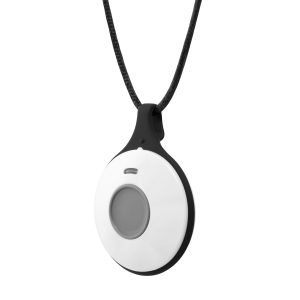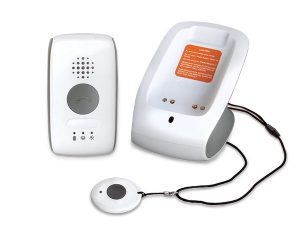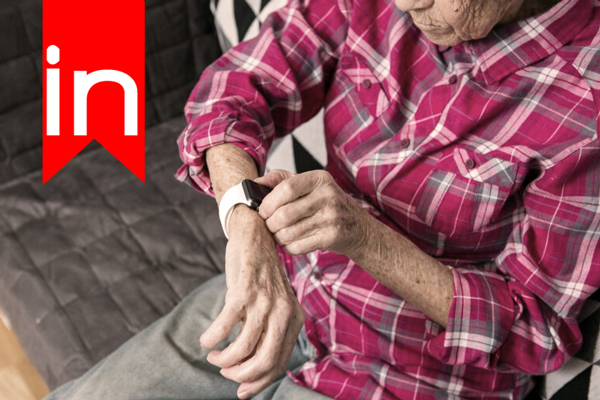Senior Medical Alert Systems with GPS
Almost every single medical alert system company has a medical security plan with GPS tracking abilities somewhere within their products. With the new technological advancements in GPS tracking, adding it to senior medical protection plans seems practical, as it allows seniors to travel wherever they want outside their homes while still being protected. Below are two examples of medical alert company’s GPS plans, and a good model of how they similarly offer the same features as many other kinds of medical alert brands.
Medical Alert GPS Plans
LifeStation Mobile with GPS
LifeStation Mobile with GPS has a whole medical alert system built into one device that can either be worn on your wrist like a watch or around your neck like a necklace.
This device has a speaker with voice capabilities to communicate with a trained, LifeStation specialist. This device also has WiFi positioning location tracking abilities and can connect to any hotspots if needed.
Overall, this plan has a straightforward and easy-to-use device in case of emergencies and should keep all clients using this plan as safe as possible.

MobileHelp Solo

MobileHelp Solo not only is built for away from home traveling but also has features for in-home use, as well. For example, this plan has no required landline or cellular contract and instead provides you with access to an emergency monitoring service no matter where you are or what time it is.
This plan comes with a waterproof wrist or neck pendant button with GPS tracking and ensures you are in safe hands at all times. This plan also has online tools where clients can see emergency, non-emergency, and system status alerts. Location detection requests can also be seen online, as well.
Therefore, MobileHelp Solo does offer extra online features unlike LifeStation or some other brands, and is known for almost all of their GPS products.

All in all, both GPS plans above have similarities and differences that make them all the more appealing to consumers everywhere. Whether one company has WiFi capabilities and one has better online references, both could be fit for seniors. People have many different lifestyles, even if they all need a similar GPS medical alert plan. What matters most is that those seniors feel secure and protected.
Related Posts

Medical Alert Bracelet For Breast Cancer Patients: Essential Information for Emergencies

Medical Alert Watch With No Monthly Fee

Why Seniors Living At Home Need a Medical Alert System

Activities of Daily Living: A Comprehensive Guide to Maintaining Independence
Sponge Bath: Bed Bathing Seniors


LifeCall is an American company with a long history of providing excellent monitoring services and efficient emergency alert systems to health care facilities catering to the elderly and individuals for use both indoors and on the go all over the United States.
Call Now
1 (866) 225-1295
Read The Review


